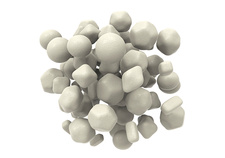As the sun beams down, the importance of sunscreen becomes crystal clear. But with the array of sunscreens available on the market, choosing the right one for your skin can feel like navigating a maze. The debate between mineral and chemical sunscreens is a hot topic, so let's break down the differences to help you find your perfect sun protection.
What’s the Difference?

Mineral Sunscreens: Also known as physical sunscreens, these contain active mineral ingredients like zinc oxide or titanium dioxide. They work by sitting on top of the skin and physically blocking or reflecting UV rays away from the skin's surface.
Chemical Sunscreens: These sunscreens, on the other hand, contain organic (carbon-based) compounds such as oxybenzone, avobenzone, and octisalate. They absorb UV rays, convert them into heat, and release that heat from the skin.
The Pros and Cons
Each type of sunscreen has its own set of advantages and potential drawbacks.
Mineral Sunscreens:
Pros:
- Immediate Protection: Mineral sunscreens start working the moment they are applied, as they don't need to be absorbed by the skin.
- Gentle on Sensitive Skin: Ideal for those with sensitive or acne-prone skin, as they are less likely to cause irritation.
- Environmentally Friendly: Often considered safer for marine life, particularly coral reefs.
Cons:
- White Cast: These sunscreens can sometimes leave a white or chalky residue on the skin, particularly on darker skin tones.
- Thicker Texture: Mineral sunscreens tend to be thicker and may feel heavier on the skin.
Chemical Sunscreens:
Pros:
- Easier Application: Generally lighter in texture, chemical sunscreens are easier to rub into the skin without leaving a residue.
- No White Cast: They are transparent upon application, making them more suitable for all skin tones.

Cons:
- Potential for Irritation: Certain chemical ingredients may cause irritation, particularly for those with sensitive skin.
- Wait Time: Chemical sunscreens need to be applied about 20 minutes before sun exposure to be fully effective.
- Environmental Impact: Some chemical ingredients have been found to be harmful to marine ecosystems.
Choosing the Right Sunscreen for Your Skin
Now that you know the basics, how do you choose? The answer depends on your skin type, lifestyle, and personal preferences.
- Sensitive Skin: Mineral sunscreens are generally the safer bet. Their gentle formulas are less likely to cause reactions or flare-ups.
- Active Lifestyles: If you spend a lot of time outdoors, particularly in water, a water-resistant chemical sunscreen might be more convenient.
- Everyday Wear: For daily use under makeup or just running errands, consider what feels best on your skin. If you’re concerned about the white cast, a lightweight chemical sunscreen might be more appealing.